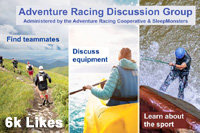Introduction to Adventure Racing; Different Types of Adventure Races
Rob Howard / 23.08.2020
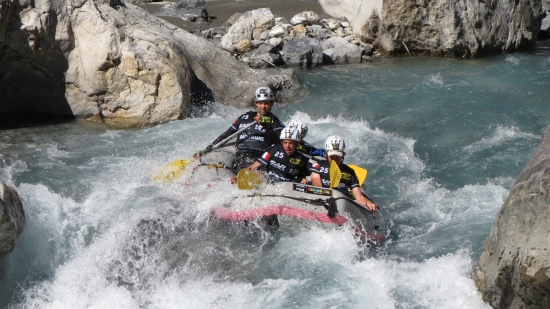
Adventure racing can encompass all sorts of events ... but many will simply be called an 'Adventure Race' so you need to look into what they actually involve! Some will include a time, like a '24 hour adventure race', which is more helpful.
These are some of the different types of races around, and they are mainly distinguished by the time a race will take.
Expedition or XPD Adventure Race (A multi-day expedition)
These are the biggest, longest, toughest version of the sport, also the most high profile, and it’s where the sport began.
Most sports start small and move onto bigger and harder competition – not adventure racing, which has a rebel streak a mile wide. It’s a sport which started with Raid Gauloises, a race which took teams to the most remote and challenging locations and raced them non-stop for days without any kind of support.
Sadly, the Raid Gauloises is no more, but there are more XPD races on the calendar than ever before, notably in the Adventure Racing World Series, which has races all over the world. There are also continental XPD series in Europe and South America, and numerous races not associated with any series.
The term Expedition Race was coined by Mark Burnett who was inspired by Raid Gauloises and founded his own race called Eco-Challenge, which has now come back into adventure racing after 17 years away.
So what is an Expedition Adventure Race?
Typically they are non-stop races for mixed sex teams of 4 and take place in challenging and varied terrain (mountain, ocean, forest, and desert). Teams change equipment for paddling, trekking and mountain biking stages at transition areas and races often try to incorporate challenges and locations relating to the history and culture of the area.
Most XPD races these days are 3-5 days long with distances from 350-600 km. Over the years the tendency has been to move to shorter events so racers only need to take a week off work at most, making it easier to compete. Teams are expected to be self sufficient and wilderness navigation (without electronic aids) is a key part of the challenge. They are extreme endurance races, adventures and explorations all rolled into one extraordinary package.
(The revived Eco-Challenge is the same mix of race/adventure/exploration but it harks back to how racing was two decades ago so is something of a one-off. At 11 days it’s much longer than other races and the Fiji race did not have the same strict self sufficiency ethos most races do now.)
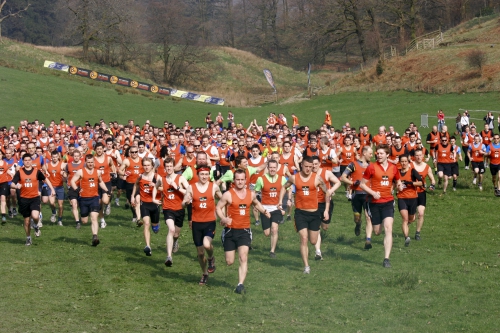
Sprint Races (A day out)
This is the other extreme of adventure racing, and a sprint race is generally taken to mean races anything from 2-6 hours long.
When a sport calls a 6 hour race a ‘sprint’ you know it’s an endurance sport! (And you won't see the term used in any race title or description, it's really just used between racers.)
These races require less technical skills and are designed to be easy enough for anyone to have a go. This is especially true of the kayaking stage, which might just be a short paddle on a sit-on-top.
Some sprint races will involve navigation, but others won’t. Team make up can also be much more varied with teams of 2 or 3 and sometimes solo categories. (Some would say teamwork and navigation are required to be a true adventure race, but there are ‘adventure races’ which don’t have these.)
Some sprint events might also include teamwork challenges and obstacles – in fact some of the earliest of these kinds of races in the early 2000’s included slippery walls, mud pits and other challenges ... well before OCR took off as a sport.
The Races In-Between (Something for the weekend & into the night)
In between those two extremes come day races, 12 hour races, 24 hour races and weekend races. The difference is that while a sprint race is a day out, these races require more time and commitment. You are spending much, or all, of your weekend adventure racing and tackling longer, harder courses.
These events involve racing into the hours of darkness, or right through the night. You may be heading off Friday evening after work, getting back late Sunday night, and possibly not at your best at work on the following Monday morning!
Racing in the dark makes everything harder, especially navigation, and for 24 or 36 hour races you will be dealing with sleep deprivation as well. These are tough races in their own right, and for those who have aspirations to take on an XPD race they are valuable experience.
The Adventure Racing World Series has now launched regional series and championships with races which fall into this category, and there are national series held in a few countries.
In Australia, New Zealand and South Africa there is also the A1 Adventure Series which has 12/24/30 and 36 hour races.
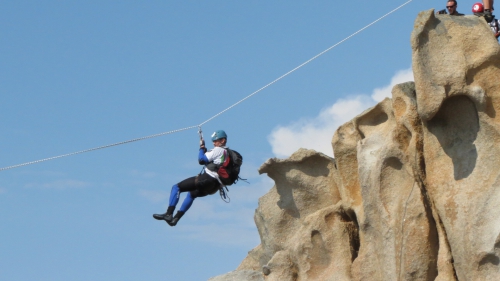
Score Events (Make your own course)
A score event is based on an orienteering format and lasts for a fixed time, but has no fixed course.
At a score event you are given a time limit for the race and a map with all of the checkpoints, each with a point value. The aim is to score as many points as possible by visiting the checkpoints, and you choose which order to visit them in, and how to get between them. In effect you design your own course. (And if you are late back points are taken off.)
It’s a race format which is most likely to be used for a sprint event rather than in longer races, but in Australia the Rogue Raid is a full on 24hr adventure race on a score format. The Open 5 race in the UK is a score adventure race with running and biking stages and as the name suggests last 5 hours.
Sometimes there are stages within longer races where checkpoints are taken in any order, and this can be on foot, bike or in kayaks. (These don't involve collecting points however, you are just getting all the checkpoints as fast as possible.)
Rogaining is a form of long distance score orienteering held over 24 hours, usually with pairs of runners. Its good training for adventure racing and many of the world’s elite adventure racers are top ranked rogainers.
Stage Races (Taking Time Out)
All of the above categories are non-stop races, but there are some adventure races which are divided into stages, with time-outs in-between. These allow some recovery and are more sociable as the teams can gather together to swap race stories, but they have sadly fallen out of favour in recent years.
For many years the Salomon X-adventure series was at the pinnacle of the sport with stage races held all over the world and the elite of the adventure racing world competing. One remaining stage race is now the oldest adventure race in the world – The Corsica Raid.
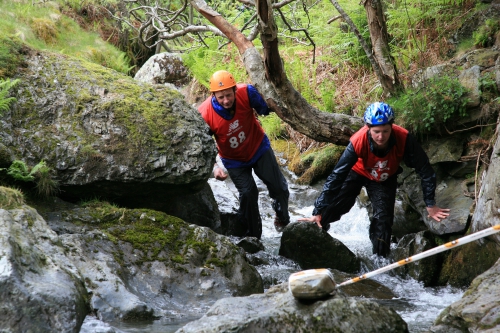
Multisport Events (Forget the compass and go fast)
These are not strictly adventure races, but are often called adventure races. They are usually non-stop with multiple stages for the different sports disciplines, but on fixed courses, so there is no navigation. They may include road biking rather than mountain biking and have solo categories.
Often sprint races are multisport events, because they are easier for beginners to have a go at. (There are a lot more road bikes than mountain bikes, and navigation puts off the weekend warrior.)
The best known multisport race in the world is the Kathmandu Coast to Coast Race in New Zealand, which is styled the Multisport World Championship.
Resources & Links
Adventure Racing World Series; www.arworldseries.com
ARWS Oceania; https://arworldseries.com/arws-oceania/
ARWS Africa; https://arworldseries.com/arws-africa/
ARWS South America; https://arworldseries.com/arws-south-america/
ARWS Asia; https://arworldseries.com/arws-asia/
Eco Challenge; www.ecochallenge.com
Open 5; https://www.openadventure.com/open5/
Rogue Raid; https://raidadventures.com/the-rogue-raid/
Kathmandu Coast to Coast; https://www.coasttocoast.co.nz/
Corsica Raid; http://www.corsicaraid.com/index_en.php
International Rogaining Federation; https://www.rogaining.com/
A1 Adventure Series; https://www.adventure1series.com/
Read the first three articles in this series:
Just What is Adventure Racing? Once You Find Out You'll Be Hooked!
What is Adventure Racing? – F.A.Q. Answers to Common Questions About Adventure Racing
Eight Ways Adventure Racing is Different From (And Better Than) Than Other Sports







 SleepMonsters
SleepMonsters
